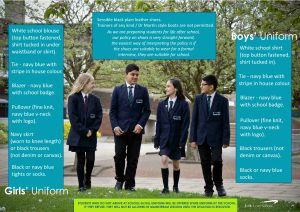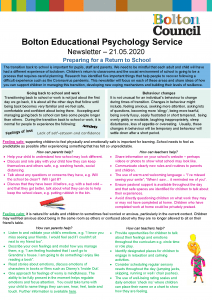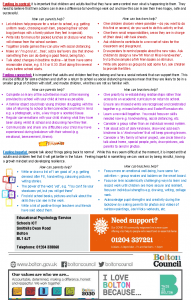We wanted to be clear that in line with the government guidance ALL students must attend school in March in line with the school’s re-opening plans.
Attendance legislation will return to the pre-COVID regulations from the start of the Autumn term. The government has made it clear that education is not an option and attendance at school will be mandatory from September. This means the usual rules on attendance apply, including:
- Parents’ duty to secure that their child attends regularly at school where the child is a registered pupil at school and they are of compulsory school age
- Schools’ responsibilities to record attendance and follow up absence
- The availability to issue sanctions, including fixed penalty notices in line with local authorities’ codes of conduct
What if my child is shielding or self isolating?
We will follow the government guidance which states:
We now know much more about coronavirus (COVID-19) and so in future there will be far fewer children and young people advised to shield whenever community transmission rates are high. Therefore, the majority of pupils will be able to return to school. You should note however that:
- a small number of pupils will still be unable to attend in line with public health advice because they are self-isolating and have had symptoms or a positive test result themselves; or because they are a close contact of someone who has coronavirus (COVID-19)
- shielding advice for all adults and children will pause on 1 August, subject to a continued decline in the rates of community transmission of coronavirus (COVID-19). This means that even the small number of pupils who will remain on the shielded patient list can also return to school, as can those who have family members who are shielding. Read the current advice on shielding
- if rates of the disease rise in local areas, children (or family members) from that area, and that area only, will be advised to shield during the period where rates remain high and therefore they may be temporarily absent (see below).
- some pupils no longer required to shield but who generally remain under the care of a specialist health professional may need to discuss their care with their health professional before returning to school (usually at their next planned clinical appointment). You can find more advice from the Royal College of Paediatrics and Child Health at COVID-19 – ‘shielding’ guidance for children and young people.
Where children are not able to attend school as parents are following clinical and/or public health advice, absence will not be penalised.
If you are concerned about your child returning to school because of the reasons stated above then we will be happy to discuss this with you prior to returning to school. Please contact us on info@little-lever.bolton.sch.uk or 01204 333300
Reporting Your Child Absent during the Covid-19 Period.
It is important that you inform the school if your child is going to be absent, for whatever reason, as soon as possible i.e. by 8.30am.
You may do this in the following ways:
- By telephoning the school office 01204 333300
- By sending a text message 07592 328139
- By sending an email to Attendance-Staff@little-lever.bolton.sch.uk
Please ensure that you state clearly one of the following reasons for absence:
- Ill with CONFIRMED Covid-19
- Self-Isolating with Covid symptoms (7 days)
- Self-Isolating due to household/contact having Covid or symptoms of Covid (14 days)
- Shielding
- Ill – for any other reason other than COVID-19
It remains the responsibility of the parent/carer to inform the school of student absence.
If a student is expected to be in school, and no notification of absence has been received, the Attendance and Welfare Leader will endeavour to contact parents/carers by telephone.
If a pupil who is subject to a Child Protection Order is absent without satisfactory explanation the Early Intervention Team will be contacted before 10.00am and asked to undertake a home visit.
Where there is a safeguarding concern relating to a student’s absence, and the student is not subject to a Child Protection Order, the schools Designated Safeguarding Lead will be informed and a home visit may be undertaken as a matter of urgency. The purpose of this visit is to establish the safety and well-being of the student.




